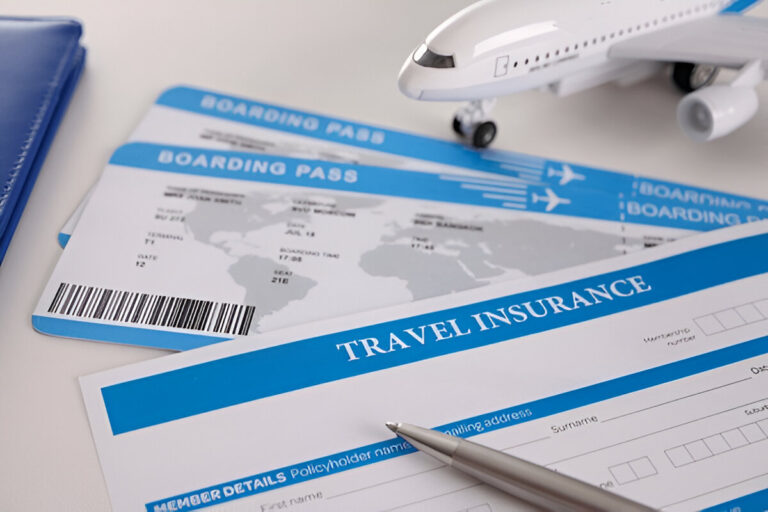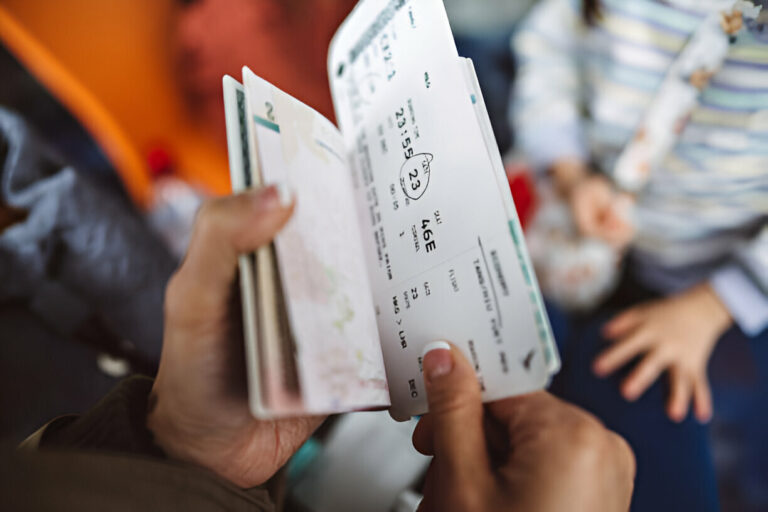Japan Spouse Visa for Immigrants – Visa Sponsorship in Japan
Reuniting with your spouse in Japan is a significant milestone that requires careful planning and understanding of the country’s immigration policies.
Japan, known for its rich culture, advanced technology, and high quality of life, offers various opportunities for immigrants seeking to build a life with their partners. Securing a Japan Spouse Visa, officially known as the Spouse or Child of Japanese National Visa, is a crucial step in this journey.
What is the Japan Spouse Visa?
The Japan Spouse Visa, officially referred to as the Spouse or Child of Japanese National Visa, allows foreign nationals who are married to Japanese citizens or permanent residents to live and work in Japan legally. This visa facilitates family reunification and provides various benefits, including access to Japan’s comprehensive healthcare system, education, and social services.
Key Features:
- Validity: Typically issued for one year, with the possibility of renewal.
- Work Authorization: Allows spouses to work in any field without needing additional permits.
- Pathway to Permanent Residency: Provides a pathway to long-term residency and eventual Japanese citizenship.
- Family Inclusion: Enables the inclusion of dependents, such as children, under the primary visa holder’s status.
Types of Spouse Visas in Japan
Japan offers specific visa categories under the Family Reunification scheme to accommodate different family situations and needs. Understanding these categories is essential to determine which visa best suits your circumstances.
1. Spouse or Child of Japanese National Visa
Designed for individuals who are legally married to Japanese citizens or are children of Japanese nationals.
- Eligibility: Must be legally married to a Japanese citizen or be the child of a Japanese national.
- Benefits: Grants the right to live and work in Japan, access to social services, and a pathway to permanent residency.
2. Spouse or Child of Permanent Resident Visa
For spouses and children of foreign nationals who hold permanent residency in Japan.
- Eligibility: Must be legally married to a permanent resident of Japan or be the child of a permanent resident.
- Benefits: Similar to the Spouse or Child of Japanese National Visa, with the added benefit of the sponsor’s permanent residency status.
3. Spouse or Child of Investor/Business Manager Visa
For spouses and children of foreign nationals holding an Investor/Business Manager Visa.
- Eligibility: Must be married to an individual holding an Investor/Business Manager Visa.
- Benefits: Allows the spouse to engage in business activities and provides a stable pathway for family members.
Eligibility Criteria for the Spouse Visa
Meeting the eligibility criteria is crucial for a successful application. Below are the general and specific requirements for obtaining a Japan Spouse Visa.
General Requirements
- Valid Passport: Both the Japanese sponsor and the foreign spouse must have valid passports.
- Marriage Certificate: Official marriage certificate recognized by Japanese authorities.
- Proof of Relationship: Evidence that the marriage is genuine and not solely for immigration purposes. This can include photos, communication records, and joint financial documents.
- Financial Stability: Evidence that the Japanese sponsor can financially support the foreign spouse without relying on public assistance. This includes employment contracts, salary slips, and bank statements.
- Accommodation: Proof of adequate housing arrangements in Japan, such as rental agreements or property ownership documents.
- Health Insurance: Valid health insurance coverage for the duration of the stay.
- No Criminal Record: Police clearance certificates may be required to demonstrate a clean criminal history.
- Visa Sponsorship: Documentation from the Japanese sponsor supporting the visa application.
Specific Criteria Based on Visa Type
- Spouse or Child of Japanese National Visa:
- Marriage Duration: Must be legally married for at least three months before applying.
- Intent to Reside Together: Evidence of plans to live together in Japan, such as joint property ownership or a rental agreement.
- Spouse or Child of Permanent Resident Visa:
- Permanent Residency of Sponsor: The Japanese sponsor must hold permanent residency status.
- Stable Income: Proof that the sponsor has a stable income sufficient to support the family.
- Spouse or Child of Investor/Business Manager Visa:
- Business Operations: Evidence that the sponsor is actively managing a business in Japan.
- Investment Proof: Documentation of the investment made by the sponsor in the business.
The Role of Visa Sponsorship
Visa sponsorship is a pivotal component of the Japan Spouse Visa application process. The Japanese sponsor acts as your sponsor, providing the necessary support and documentation to facilitate your visa application.
Responsibilities of Sponsors
- Providing Documentation:
- Proof of Marriage: Official marriage certificate and evidence of a genuine relationship.
- Financial Documents: Recent pay slips, tax returns, and bank statements to demonstrate financial stability.
- Employment Verification: Employment contracts or letters from employers confirming the sponsor’s job status.
- Compliance with Regulations:
- Legal Obligations: Ensuring that all submitted documents meet Japanese immigration standards.
- Maintenance of Residency: Assisting the foreign spouse in maintaining valid visa status and adhering to visa conditions.
- Support Services:
- Integration Assistance: Helping the foreign spouse integrate into Japanese society by providing guidance on language learning and cultural adaptation.
- Emergency Support: Offering support in case of emergencies or unexpected situations during the stay.
Benefits of Having a Sponsor
- Enhanced Credibility: Sponsorship by a reputable Japanese citizen or permanent resident increases the likelihood of visa approval.
- Streamlined Process: Sponsors assist in navigating the complex visa application process, reducing the chances of errors or omissions.
- Support System: Access to resources and support from the sponsor enhances the overall experience and integration into Japanese society.
Step-by-Step Application Process
Securing a Japan Spouse Visa involves several steps, each requiring careful attention to detail to ensure a successful application. Here’s a detailed guide to help you navigate the process:
Step 1: Gather Necessary Documents
- Valid Passports: Ensure both passports are valid for the duration of your intended stay.
- Marriage Certificate: Obtain an official marriage certificate recognized by Japanese authorities.
- Proof of Relationship: Collect evidence of a genuine relationship, such as photos, communication records, and joint financial documents.
- Financial Proof: Gather bank statements, employment contracts, salary slips, and tax returns.
- Accommodation Proof: Secure rental agreements or property ownership documents in Japan.
- Health Insurance: Obtain valid health insurance coverage for the duration of the stay.
- Police Clearance: If required, obtain police clearance certificates to demonstrate a clean criminal record.
Step 2: Complete the Application Form
- Residence Permit Application: Fill out the official residence permit application form, available on the Japanese Immigration Bureau’s website.
- Accuracy: Ensure all information is accurate and matches your supporting documents to avoid delays or rejections.
Step 3: Submit the Application
- Japanese Immigration Bureau: Submit your application at the nearest Japanese Immigration Bureau office or through the Japanese embassy or consulate in your home country.
- Online Submission: Some visa categories may allow for online submissions through the Japanese Immigration Bureau portal.
- Appointment Booking: Schedule an appointment if required, and ensure you arrive on time with all necessary documents.
Step 4: Pay the Application Fee
- Fee Structure: The application fee varies based on the visa category. Check the specific fee requirements on the Japanese Immigration Bureau website.
- Payment Methods: Pay the fee through accepted methods such as online payment portals or in-person at the embassy or consulate.
Step 5: Attend an Interview (If Required)
- Preparation: Prepare for the interview by reviewing your application and supporting documents.
- Documentation: Bring all required documents, including originals and copies, to the interview.
- During the Interview: Answer questions truthfully about your relationship, plans in Japan, and financial stability.
Step 6: Undergo a Medical Examination
- Approved Physicians: Undergo a medical examination by an approved physician as part of the application process.
- Health Requirements: Complete all necessary vaccinations and health screenings as per Japanese immigration laws.
Step 7: Wait for Processing
- Processing Time: The processing time for a Japan Spouse Visa typically ranges from 2 to 6 months, depending on the visa category and the volume of applications.
- Tracking Status: Track your application status through the Japanese Immigration Bureau portal or by contacting the embassy or consulate.
Step 8: Receive Your Visa
- Approval Notification: Once approved, you will receive a notification to collect your residence permit.
- Verification: Ensure that all details on the visa are correct, including your name, visa type, and validity dates.
Step 9: Plan Your Travel
- Travel Arrangements: Book your flights and arrange for transportation to Japan.
- Accommodation: Secure housing in Japan, whether it’s temporary housing upon arrival or a long-term rental.
- Entry Requirements: Comply with any additional entry requirements, such as health checks or quarantine measures, if applicable.
Common Mistakes to Avoid
Avoiding common pitfalls can significantly enhance your chances of a successful visa application. Here are some mistakes to watch out for:
1. Incomplete Documentation
- Comprehensive Checklist: Use a detailed checklist to ensure that all required documents are submitted.
- Double-Check: Verify that all documents are complete, accurate, and properly translated if necessary.
2. Inaccurate Information
- Consistency: Ensure that all information provided in the application form matches your supporting documents.
- Honesty: Provide truthful and accurate information to avoid raising red flags during the application process.
3. Missing Deadlines
- Early Application: Start the application process well in advance of your intended travel date to account for processing times and potential delays.
- Timely Submission: Submit your application and all required documents by the specified deadlines to avoid rejection.
4. Underestimating Financial Requirements
- Accurate Assessment: Assess your financial needs based on living costs, healthcare expenses, and other factors in Japan.
- Comprehensive Proof: Provide thorough evidence of financial stability, including bank statements, employment contracts, or sponsorship letters.
5. Ignoring Language Proficiency
- Meeting Requirements: Ensure you meet any language proficiency requirements for your visa category or job role.
- Preparation: Prepare for and pass necessary language tests, such as the JLPT (Japanese Language Proficiency Test), if required by your sponsor or employer.
6. Not Understanding Visa Conditions
- Familiarization: Understand the terms and conditions of your visa, including permitted activities and restrictions.
- Compliance: Adhere to these conditions to maintain valid visa status and avoid legal complications.
Conclusion
Securing the right Japan Spouse Visa is a critical step in ensuring a smooth and successful transition to life in Japan. With thorough preparation and the right support, you can confidently embrace your new life in Japan, knowing that your legal and immigration needs are well-managed.
Frequently Asked Questions (FAQs)
1. Is a Spouse Visa the same as other Japanese visas?
No, the Spouse Visa (Family Reunification Visa) is specifically designed for foreign nationals married to Japanese citizens or permanent residents.
2. How long does it take to process a Japan Spouse Visa?
Processing times typically range from 2 to 6 months, depending on the visa category, the volume of applications, and the specific circumstances of your case.
3. Can I extend my Spouse Visa once I’m in Japan?
Yes, Spouse Visas can be extended based on continued marriage and adherence to visa conditions.
4. Do I need to speak Japanese to obtain a Spouse Visa?
While not always mandatory, proficiency in Japanese can enhance your integration into Japanese society and may be required for certain visa categories or to access specific services.
5. Can my family join me in Japan on a Spouse Visa?
Yes, dependents such as children can accompany you on a Family Reunification Visa if you meet certain financial and sponsorship criteria.
6. What happens if my Spouse Visa application is rejected?
If your application is rejected, you can appeal the decision or reapply with additional documentation addressing the reasons for rejection.




